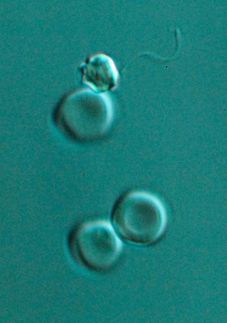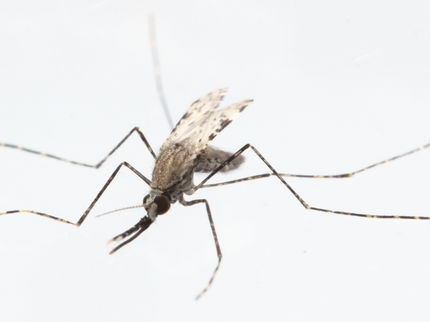Mosquitoes Vs. Malaria: How We Can Win The Fight
Advertisement
Heidelberg. Scientists from European molecular biology Laboratory have identified four mosquito proteins that affect the ability of the malaria parasite (Plasmodium) to survive and develop in the malaria-carrier mosquito (Anopheles). This breakthrough, featured in recent issues of Cell and Science, could be used to block the transmission of malaria from mosquitoes to humans.
"Many researchers focus on the direct effects of Plasmodium on the human body but the mosquito is an equally important battleground in fighting the disease," notes Prof. Fotis C. Kafatos, EMBL's Director-General and leader of the group focusing on malaria research. "We now see a way to potentially stop the parasite in its tracks."
When a blood-feeding Anopheles mosquito bites an infected organism, the insect feeds on its blood - taking in the malaria-causing Plasmodium. After three weeks of developing within the mosquito, the Plasmodium moves from the insect gut into the salivary glands and is ready for transmission: at the next bloodmeal it will be injected into the bloodstream along with the mosquito's saliva, initiating a new infection cycle.
But one fact that had continued to puzzle malaria researchers is why within one mosquito species, some mosquitoes transmit malaria (termed "susceptible"), whereas others do not ("refractory"). It was suspected that protein factors of the mosquito's immune system might be responsible for this difference. EMBL scientists have now shown this to be the case - with a new twist.
Two of these mosquito proteins, TEP1 and LRIM1, were shown to be true defenders of the mosquito - killing the parasite in the insect's gut.
"The TEP1 and LRIM1 studies proved that the mosquito's immune system has the ability to defend itself against malaria. By enhancing these natural defenders, we may be able to block the parasite-mosquito cycle," says EMBL PhD student Stephanie Blandin, who worked on the TEP1 studies with CNRS researcher (and EMBL alumna) Elena Levashina and collaborators from the University of Leiden (The Netherlands).
"Our studies on TEP1 represent an important step because they show that TEP1 specifically locks onto the Plasmodium and it is this binding that mediates the killing of the parasite," notes Levashina. "Different forms of this protein are present in susceptible and refractory mosquitoes, potentially accounting for the fact that refractory mosquitoes do not sustain parasite development."
In the Kafatos Group, a collaboration between postdoctoral fellow Mike Osta and Staff Scientist George Christophides revealed a new twist: in addition to the mosquito defender protein LRIM1, they discovered two proteins, CTL4 and CTLMA2, which have an opposite effect, actually protecting the parasite as it develops in the mosquito gut. If these proteins were eliminated, the parasites died.
"It is now clear that if we strip away protective proteins, the parasite becomes vulnerable to the mosquito's immune system," Christophides notes. "Developing novel chemicals to inhibit the ability of such proteins to protect the parasite is a promising avenue to decrease the prevalence of malaria."
Prof. Kafatos agrees. "These studies are the first to show the power of the mosquito's immune system and give us some very real options for fighting the disease in the insect before it even has a chance to be passed to a human," he explains. "There is no single 'magic bullet' for controlling this ancient scourge of humanity, but we want to exploit this new lead to contribute to the defeat of malaria."

























































